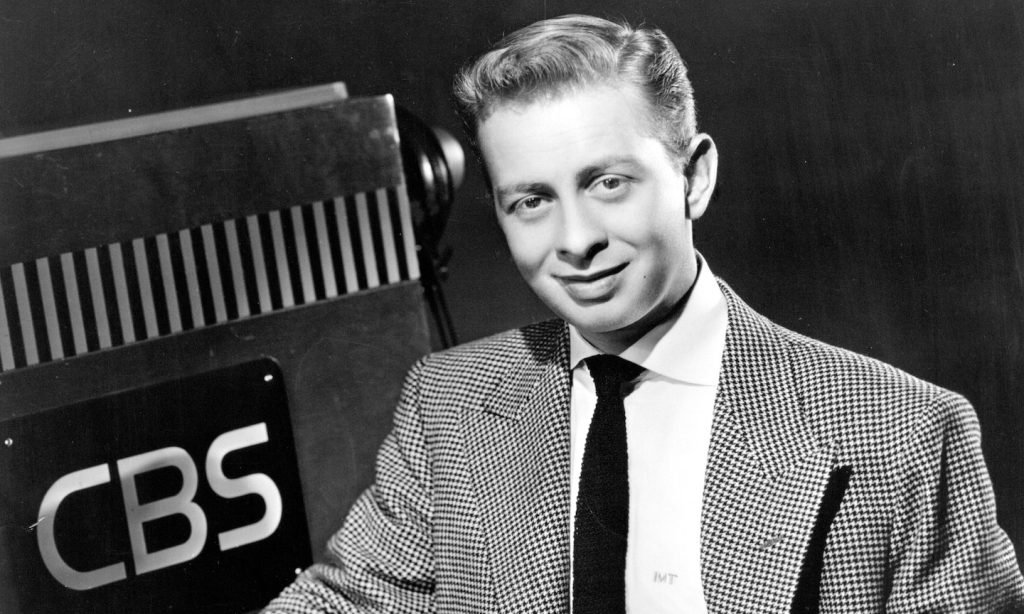Considered by his peers to be a “singer’s singer,” Mel Tormé was an extraordinary vocal technician with unmatched abilities as an improvisational vocalist who sang and scatted his way through the Great American Songbook. He was also a composer, arranger, and drummer who possessed an encyclopedic knowledge of American music.
Melvin Howard Tormé was born in Chicago in 1925 and began singing professionally at the age of four, and began appearing on radio from 1934 to 1941, by which time he had already begun to write songs. His first to find success was “Lament To Love” which was recorded by Harry James in 1940. The most famous among the 300? An iconic number called “The Christmas Song.” Two years later, Mel joined the Chico Marx Band before appearing in Frank Sinatra’s first major film Higher and Higher in 1943.
Mel became the arranger and lead singer for the Mel-Tones in 1943 and the group went on to have hits for Decca Records. In 1947 he went solo and, two years later, Capitol Records signed him. His first recording for the label, “Careless Hands,” made No.1. There were a number of others during the next year including a duet with Peggy Lee. He composed “California Suite” in 1949 that came out in an old-style 78-rpm album and it helped pioneer cool jazz.
With little chart success after 1950, Mel signed with Bethlehem Records in 1955, deciding to immerse himself completely in jazz. In 1958 he made his first record for Verve, along with Marty Paich, who had been working with Tormé for a number of years. Tormé was recorded in Los Angeles in June, and it is a masterpiece.
The following year he recorded Ole Tormé with Billy May and another with Marty Paich and The Meltones called Back In Town that featured saxophonist Art Pepper. In 1960, Tormé released one of his best albums, Mel Tormé Swings Shubert Alley. A couple more albums followed, but then his Verve career was over. Shortly after he had an American hit single with “Comin’ Home Baby,” Tormé found he was completely out of fashion for the best part of 20 years.
It was only as the 1970s ended that he got the recognition he so richly deserved. In the early 80s, he teamed up with George Shearing on a number of highly acclaimed albums. According to the pianist, “It is impossible to imagine a more compatible musical partner.” A stroke in 1996 ended his career, and he passed away three years later on June 5, 1999.
Listen to the best of Mel Tormé on Apple Music and Spotify.



